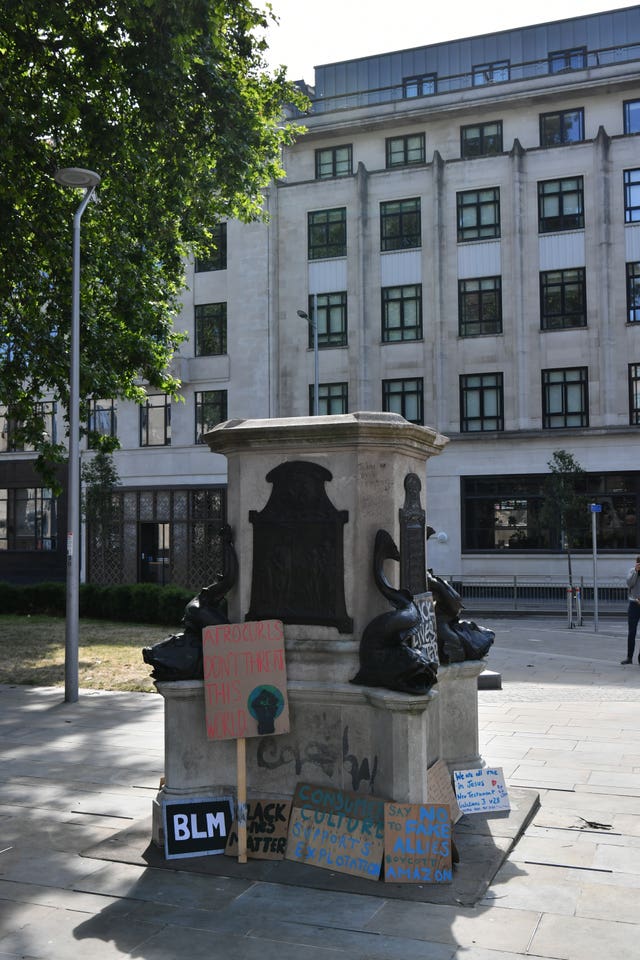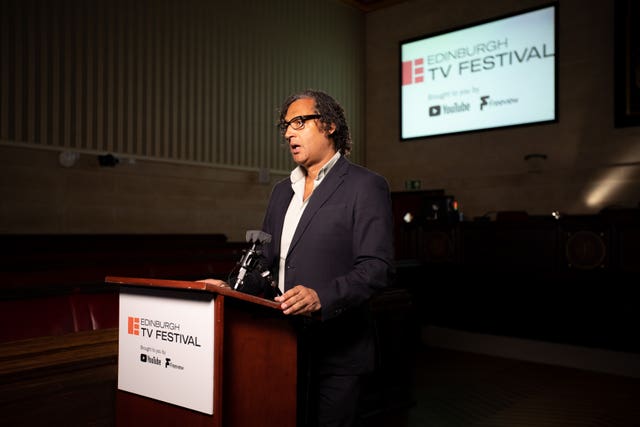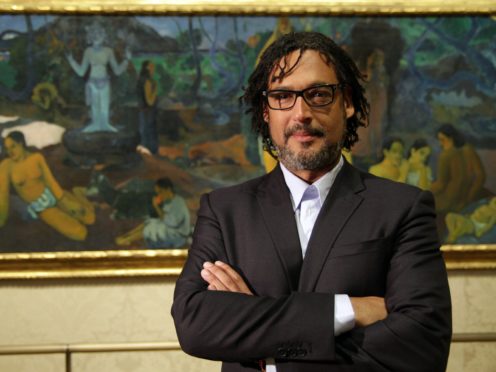David Olusoga has said he “desperately” wanted to join anti-racism protests in Bristol, but did not because he promised his family he would be “careful” during the pandemic.
The historian and presenter said he fought the urge to cycle to the June protests, which saw the statue of 17th century slave trader Edward Colston toppled and thrown into the harbour.
Olusoga lives in Bristol with his partner, a television producer, and their young daughter.

He told Radio Times: “I was at home, doing what I normally do, trying to write while monitoring social media.
“I was following the crowds as they moved down to the statue.
“I desperately wanted to be there. Seeing people and all of this energy around the statue, I fought enormously against the urge to jump on my bike and cycle down there – my home is only 10 minutes away.
“I’ve been in Bristol longer than anywhere else I’ve ever lived and throughout that time the statue has loomed over us.”
Olusoga said the decision not to attend was “very difficult”.
He added: “Though, before I could be tortured by not being able to go, Colston’s statue toppled.
“It was a hugely emotional moment but, at that point, my job was to start writing.”

Olusoga argued that negative reaction to the events in Bristol had been influenced by racism.
He told the magazine: “Almost predictably, what happened in Bristol was put down to thuggery.
“The word ‘thug’ has long been used in this country as a dog whip for attacks on black people, it’s a word that drips with racism, but it just doesn’t stand up to scrutiny.
“The nearby statue of Edmund Burke wasn’t touched. Queen Victoria’s statue is around the corner – that wasn’t touched.
“There’s a supermarket full of alcohol. If there had been thuggery, there would have been broken windows, there would have been alcohol and cigarettes stripped off the shelf.
“None of that happened.”
Last month, Olusoga used the annual MacTaggart Lecture, the keynote speech of the Edinburgh TV Festival, to highlight a “lost generation” of diverse talent in the television industry.
